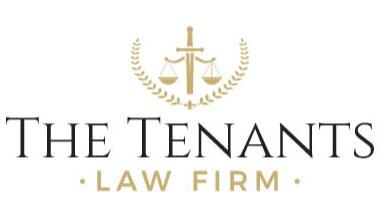Sexual Harassment and Renters' Rights in Los Angeles: Know Your Legal Protections
Sexual harassment is an alarming issue that can affect anyone, including renters in Los Angeles. Unfortunately, it is an often-overlooked aspect of tenant safety and rights. This article aims to shed light on the prevalence of sexual harassment in rental properties and underscore the importance of being informed about your rights as a tenant. In Los Angeles, tenants are legally protected against sexual harassment by their landlords or anyone associated with their rental property. These protections are enshrined in both federal and state laws, which seek to ensure a safe and respectful living environment for all renters. Knowing these legal protections is crucial for any tenant facing harassment, and seeking help from Tenants Law Firm can provide the necessary support and guidance.
Recognizing the Red Flags
Sexual harassment in rental situations can take many forms, including unwelcome advances, inappropriate comments, and quid pro quo propositions where a landlord demands sexual favors in exchange for rent reductions or maintenance services. It is important for tenants to recognize these signs and understand that such behavior is illegal and unacceptable. Real-life examples can illustrate the various ways sexual harassment manifests in rental properties. From a landlord making suggestive comments to a property manager exploiting their power, understanding these scenarios helps tenants identify harassment early and seek appropriate help.
Legal Protections and Rights
Federal laws such as the Fair Housing Act, along with California state laws, provide robust protections against sexual harassment for renters. These laws prohibit landlords and property managers from engaging in any form of sexual harassment and provide tenants with the right to live free from such misconduct. Additionally, local ordinances in Los Angeles further bolster these protections, providing renters with multiple avenues to report harassment and secure legal remedies. It is important to reach out to Tenants Law Firm and seek help when facing corrupt land lords. Tenants Law Firm will take comprehensive measures that highlight our commitment to safeguarding renters' rights and promoting a harassment-free living environment.
Building Your Case
If you are a victim of sexual harassment, documenting every incident is vital. Keep records of all interactions, including dates, times, and details of what occurred. Save any relevant communications, such as emails or text messages, which can serve as evidence in your case.
Finding the Right Help
Tenants Law Firm is a non profit law firm that specializes in defending renters' rights and can provide invaluable assistance to harassment victims. We offer legal advice, help file complaints, and represent tenants in court if necessary. Having a knowledgeable lawyer on your side can significantly improve the chances of a successful outcome. Our lawyers will help you understand the legal process and will demystify what might seem like an overwhelming journey. From filing initial complaints to participating in hearings or court cases, our lawyers will prepare tenants for each step and help them feel more confident in seeking justice.
Conclusion
Combating sexual harassment in rental properties requires awareness, proactive documentation, and a clear understanding of legal rights. Tenants should feel empowered to take action and seek help from appropriate authorities and legal professionals. No tenant should endure sexual harassment. By knowing your rights and utilizing the available resources, you can take control of your living situation and ensure a safe, respectful environment. If you are facing harassment, remember that legal help is available, and you do not have to navigate this challenging situation alone. Seeking support from Tenants Law Firm can provide the guidance and advocacy needed to protect your rights and achieve justice.
Tenants Law Firm is here to help. If you are in need of any legal assistance, contact us by calling (310) 432-3200 or by using this form.
